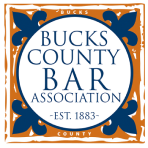HARRISBURG — Committed to protecting Pennsylvania’s most vulnerable citizens, the Pa Supreme Court Advisory Council on Elder Justice in the Courts today released its latest progress report.
The report details efforts to combat elder abuse, address the needs and challenges facing Pa’s aging population, and improve and protect access to justice for elders.
“This report is evidence of Pennsylvania’s strong commitment to protecting its elders,” said Pa Supreme Court Justice Debra Todd. “I am deeply grateful to all those who have contributed to the many successes detailed in the report, and who are effecting real change in the way that our commonwealth combats elder abuse.”
A report by the Supreme Court’s Elder Law Task Force released in 2014 detailed 130 specific recommendations to courts and other government entities to help lay the foundation for improvements in tackling issues involving guardianships, elder abuse and neglect, and overall access to justice.
Created to continue the work of the task force while serving as a liaison to the executive and legislative branches, the Advisory Council’s progress report provides an updated blueprint for courts and others to follow as they continue working to tackle the many challenges facing Pa’s elders.
One of the Council’s most notable achievements detailed in the report has been the development and implementation of the Guardianship Tracking System (GTS), which allows courts to better monitor active guardianships through a statewide uniform process.
In addition to the new GTS the Council has focused on efforts to educate judges, court staff, attorneys, guardians and the public about the warning signs of elder abuse including:
- Development of educational programs for judges handling guardianship cases;
- Educational sessions for judges and court staff on abuse and exploitation; and
- Piloted training for family and lay guardians about their powers, duties and responsibilities
In addition, with the approval of the Supreme Court, a pilot Elder Court project was created in Philadelphia, which includes the creation of the Elder Justice & Civil Resource Center. Through the Center, volunteer attorneys and advocates provide direct services on legal issues as they relate to elders including training programs on landlord/tenant, mental health issues and financial exploitation. Since opening, the center has provided assistance to hundreds of elders and their families needing assistance.
As the fourth oldest state in percentage of population age 65 and older, Pennsylvania has approximately 2.9 million residents over the age of 60. By 2020, this population is projected to increase by 25 percent.
For more information on the work of the Advisory Council on Elder Justice in the Courts, visit www.pacourts.us.
Read the executive summary and full report here.
